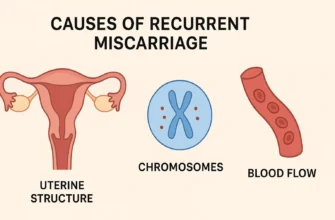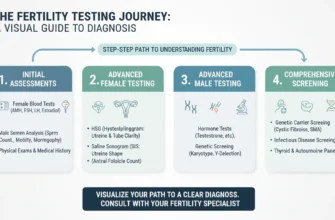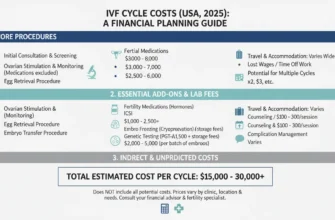Root Canal Treatment in Turkey
What is Root Canal Treatment?
What is a Root Canal, and Why Might I Need One?
Root canal treatment is a dental procedure designed to save a tooth that is severely decayed, infected, or damaged. Inside every tooth is a soft tissue called the pulp, which contains nerves and blood vessels. When the pulp becomes infected or inflamed due to deep decay, repeated dental procedures, or trauma, it can cause intense pain and swelling. If left untreated, the infection can spread to surrounding tissues, leading to abscesses and potential tooth loss. Root canal treatment eliminates the infection and restores the tooth’s function.
What Are the 5 Basic Root Canal Steps in Order?
- Diagnosis: Using X-rays or advanced imaging, the dentist evaluates the tooth to locate the infection.
- Anesthesia: Local anesthesia ensures a painless procedure.
- Cleaning the Canals: The infected pulp is removed, and the canals are thoroughly cleaned and shaped.
- Filling the Canals: The canals are filled with a biocompatible material to prevent reinfection.
- Final Restoration: A crown or filling is placed to protect the treated tooth and restore its functionality.
What is Microscope-Assisted Root Canal Treatment (Microendodontics)?
How Does It Benefit Endodontic Procedures?
Microscope-assisted root canal treatment, also known as microendodontics, is a modern approach to endodontic care that utilizes high-powered dental microscopes. These microscopes provide enhanced visualization of the tooth’s interior, allowing dentists to detect and treat even the smallest cracks, hidden canals, or complex root structures. This precision increases the likelihood of successful treatment and reduces the need for retreatment.
What Issues Can Micro Endodontics Solve?
- Detection of Hidden Canals: Microscope technology allows dentists to find canals that traditional methods might miss.
- Treatment of Calcified Canals: It enables safe and effective cleaning of canals that are blocked by calcium deposits.
- Enhanced Precision in Retreatment: Previous failed treatments can be addressed more effectively with better visibility.
Why Choose Turkey for Dental Treatment?
Why Choose Istanbul Dental Academy for Root Canal Treatment?
The Istanbul Dental Academy is renowned for its state-of-the-art facilities and highly skilled endodontists. Specialists here combine advanced technology, such as dental operating microscopes, with years of expertise to deliver exceptional care. Their focus on painless, high-precision treatments ensures patient comfort and satisfaction.
Key Advantages for Patients Seeking Dental Care in Turkey
- Affordability: Dental care in Turkey is significantly more affordable compared to Western countries.
- Expertise: Turkish clinics are staffed by highly qualified dentists trained in the latest techniques.
- Tourism Opportunities: Patients can combine dental treatment with exploring Istanbul’s rich history and culture.
- Modern Technology: Many clinics use cutting-edge tools, including microscopes in root canal treatment in Istanbul.
Microscopic Dentistry
What is Microscopic Dentistry?
How Dental Microscopes Optimize Visualization in Endodontic Surgery
Microscopic dentistry is the use of high-powered microscopes to enhance visibility during dental procedures. In root canal treatments, dental microscopes magnify the tooth’s interior up to 25 times, allowing dentists to work with unmatched accuracy. This technology helps in locating hidden canals, removing debris, and sealing the canals effectively.
Advantages of Microscopic Dentistry
- Increased success rates for complex procedures.
- Better patient outcomes with reduced risk of reinfection.
- Minimally invasive techniques that preserve more of the natural tooth structure.
From Dentistry to Micro-Dentistry
How Modern Techniques Are Transforming Root Canal Treatments
The shift from traditional methods to micro-dentistry has revolutionized root canal treatments. Dental microscopes, combined with advanced imaging technologies, enable more precise diagnosis and treatment. This ensures faster recovery times, less post-procedure discomfort, and long-lasting results.
Dental Treatment Under a Microscope
Benefits of Microscope-Assisted Root Canal Treatment (Microendodontics)
Better Visualization of Obliteration and Denticles
Microscopes provide enhanced visibility of obliterated canals, denticles, and other complex anatomical features. This ensures thorough cleaning and sealing of the root canals, reducing the risk of infection.
Improved Prognosis for Special Therapies at the Apex
Microscopic precision allows for successful apexification and apexogenesis procedures, which are critical for preserving the tooth’s root structure.
How is Microscope-Assisted Root Canal Treatment Applied?
Supporting the Dentist from Diagnosis to Post-Endodontic Management
From initial diagnosis to post-treatment care, microscopes enable dentists to make accurate assessments, perform precise procedures, and monitor healing progress effectively.
How is the Filling of Tooth Canals Under a Microscope Done?
Using a microscope, dentists can place filling material with unparalleled accuracy, ensuring a tight seal that prevents reinfection.
Is Microendodontics Treatment Painless?
Pain During Dental Root Canal Treatment
While traditional root canals might be associated with discomfort, microscope-assisted treatments minimize pain by enabling less invasive techniques.
Is Painless Root Canal Treatment Possible?
Yes, with modern anesthesia and the precision of microendodontics, patients can experience a virtually painless procedure.
Successful Endodontic Treatment with Dental Operating Microscopes
Specialist Endodontist and Endodontic Services
Endodontist vs. Dentist: What’s the Difference?
An endodontist is a specialist who focuses on diagnosing and treating issues related to the tooth’s pulp and root canals. While general dentists perform basic root canals, endodontists handle complex cases requiring advanced expertise.
What Procedures Does an Endodontist Perform?
- Root canal treatments and retreatments.
- Microsurgical procedures like apicoectomy.
- Management of dental trauma and cracked teeth.
Why is Microscope-Assisted Root Canal Treatment Used?
Facilitating Microsurgical Techniques
Microscopes enable precise surgical interventions, such as removing residual infected tissue at the root tip (apicoectomy).
How Microscope-Assisted Techniques Reduce Risk
Enhanced visibility reduces the risk of errors and complications, ensuring a higher success rate for treatments.
Micro Endodontics in Istanbul, Turkey
How Much Does Endodontic Treatment Cost in Turkey?
Root Canal Treatment Turkey Cost (2024)
The cost of root canal treatment in Turkey varies depending on the complexity of the case and the clinic. On average, prices range from $100 to $300 per tooth, making it a cost-effective option compared to Western countries.
How Much Does Dental Treatment Under a Microscope Cost?
Microscope-assisted root canal treatments are slightly more expensive, ranging from $200 to $500 per tooth. However, the precision and long-term success make it a worthwhile investment.
Why Choose MosDent Dental Hospital for Root Canal Treatment?
Dental Clinics in Turkey – Key Reasons for Choosing MosDent Hospital
- Experienced endodontists with expertise in microscopic dentistry.
- State-of-the-art facilities equipped with advanced technology.
- Comprehensive patient care, including travel and accommodation assistance.
Processes of Root Canal Treatment
What Are the Treatment Stages?
- Diagnosis and consultation.
- Cleaning and shaping of canals under a microscope.
- Filling and sealing of canals.
- Placement of a crown or filling.
How Long Does Root Canal Treatment Take?
The procedure typically takes 1-2 visits, each lasting 1-2 hours, depending on the complexity of the case.
Things to Know Before Root Canal Treatment
What Should You Pay Attention to After Root Canal Treatment?
- Avoid chewing on the treated tooth until the final restoration is complete.
- Maintain good oral hygiene to prevent reinfection.
- Schedule follow-up visits with your dentist.
How Can My Tooth Be Restored After Root Canal Treatment?
The most common restoration is a dental crown, which provides strength and protection to the treated tooth.
Get Free Consultation
Free Consultation Form
Fill out our online form to receive a personalized treatment plan and cost estimate.
How Do We Organize Your Medical Trip?
Niito.KZ provides comprehensive assistance, including:
- Booking your appointment at top clinics.
- Arranging travel and accommodation in Istanbul.
- Offering translation services for seamless communication.
FAQ
FAQs: Endodontics
- Q: Is root canal treatment painful? A: With modern techniques, most patients report minimal to no pain during the procedure.
- Q: How long does a root canal last? A: A well-performed root canal can last a lifetime with proper care.
When Should I See an Endodontist?
If you experience persistent tooth pain, sensitivity, or swelling, it’s time to consult an endodontist.
Looking for precise, painless root canal treatment in Istanbul? Contact Niito.KZ today to schedule your consultation and start your journey to a healthier smile!









